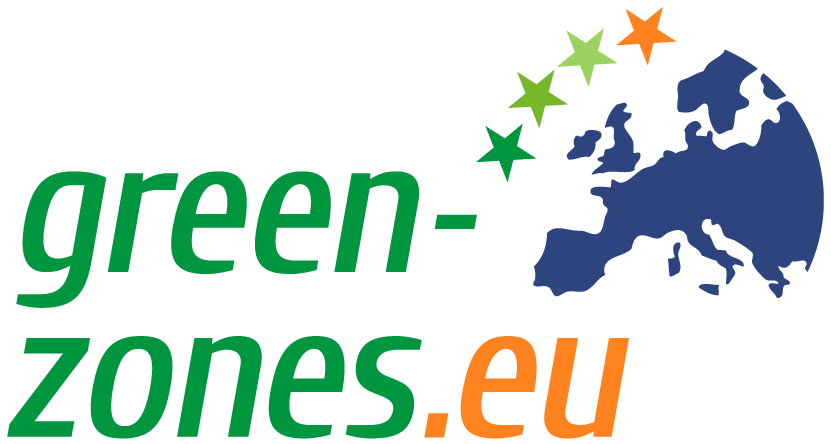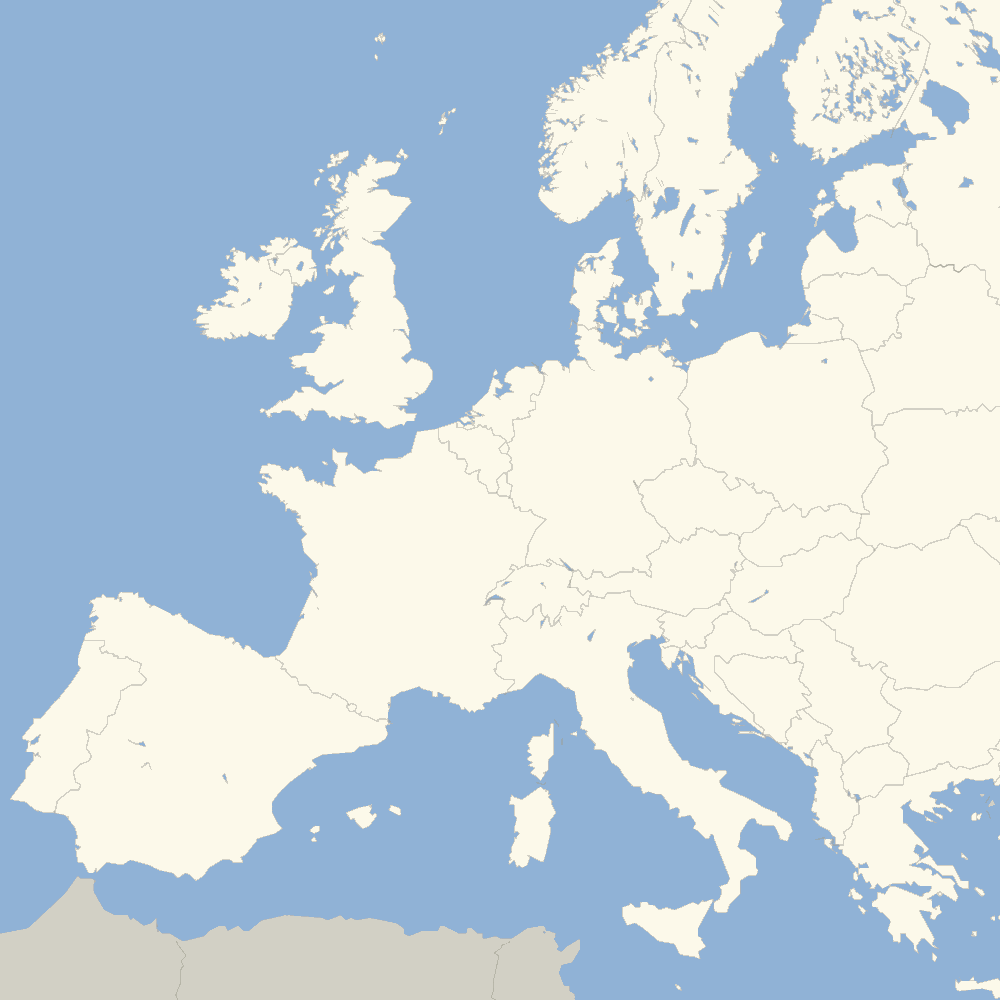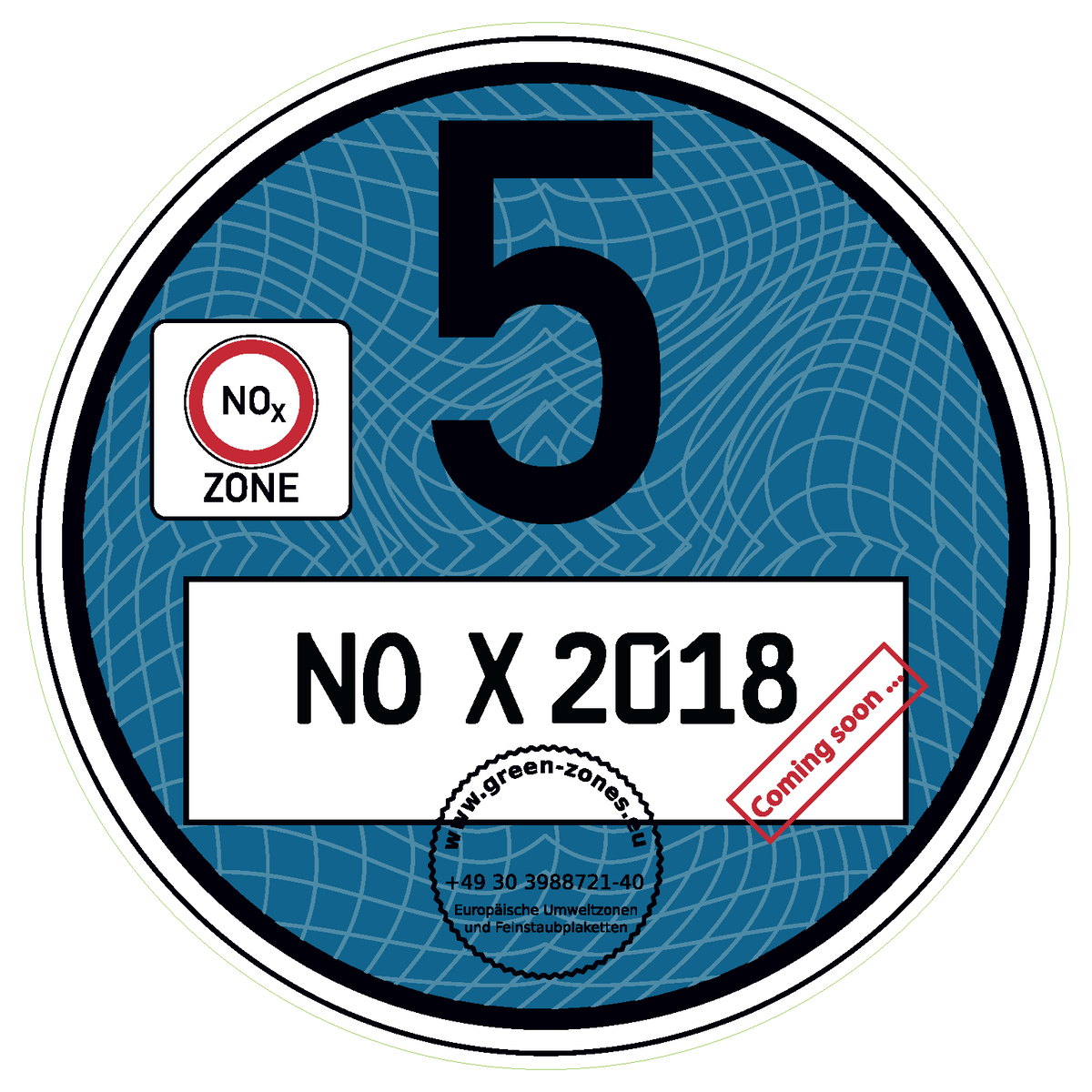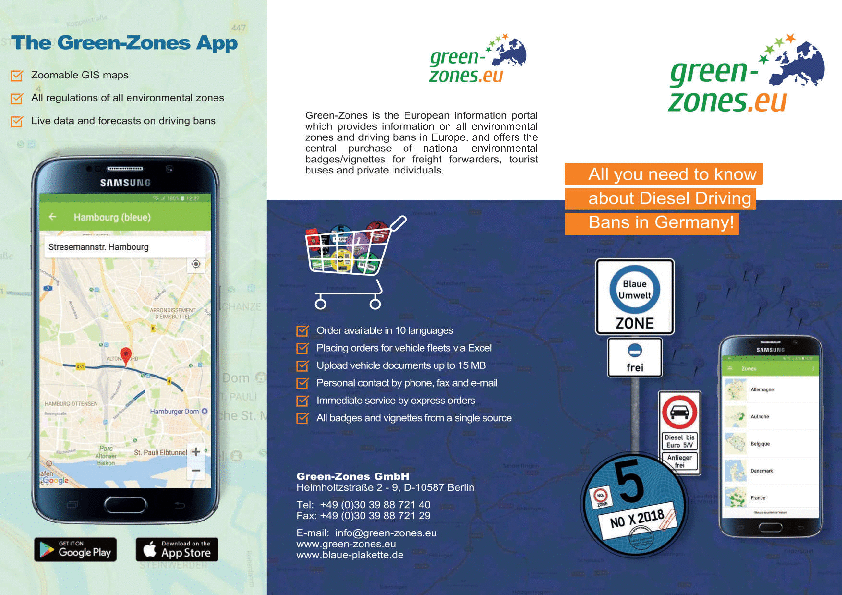Environmental zone of Cologne – Planning
The Mayor of Cologne, Henriette Reke (independent), has repeatedly stated that, in her opinion, the diesel driving bans are unavoidable and should ideally be introduced together with the Blue Badge and unified national regulations. At a CDU conference in March 2018, however, she stated that “it was not possible to wait for the introduction of the Blue Badge”, because air pollution is particularly high compared to other important German cities. Should individual driving bans be imposed, then the city of Cologne would be inspired by other cities. The example of Hamburg should not be followed by Cologne. Traffic restrictions on single roads are ineffective because, in this way, the problem would be transferred to the surrounding areas. Take for example Belgium, where the check of driving bans is carried out by intelligent cameras. However, this measure would be too expensive and time-consuming and would require a longer planning phase.
Nitrogen oxides in Cologne – Available information until June 2018
In Cologne, there are currently 16 air quality measurement points, where the State Agency for Nature, Environment and Consumer Protection of the State of North Rhine-Westphalia measures the percentage of pollutants in the air. Nitrogen oxides are analysed at 14 of these measuring points. It should be noted that the concentration of nitrogen dioxide in Cologne has not changed since 2000. At all measuring points, however, the permitted EU limit values have been continuously exceeded. Of particular importance is the Clevische ring road, where the percentage of nitrogen oxide in the air of approximately 80 µg/m3 constantly exceeds twice the allowed limits.
Besides, the State of North Rhine-Westphalia was granted an extension by the EU in order to ensure compliance with air quality limit values. This extension is granted if it can be shown that the region concerned is not able to improve air quality in a short time due to unfavorable road canyons, weather conditions or long-distance transport. The extension was granted to the city of Cologne in 2010 and expired in 2015. Thus, despite everything, the air quality improvement has not been achieved yet.
The Blue Badge for Diesel Restriction Zones
In Germany, the Blue Badge might be introduced in 2020. It is required to access diesel restriction zones.
In 2020, cities and communities will introduce driving restrictions for various EURO classes of diesel vehicles. Therefore, the Blue Badge becomes a need in order to distinguish older diesel vehicles and EURO classes as well as petrol vehicles without particle filter from vehicles with a lower emission of pollutants.
Vehicles which should get a Blue Badge
General information about diesel restriction zones and implementation.
Already set diesel restriction zones (Blue Zones): Hamburg and Stuttgart
Possible cities and municipalities for diesel restriction zones











